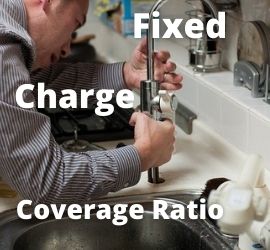What Real Estate Law Covers
Real estate law encompasses the purchase and sale of real property, meaning land and any structures on it. It also covers legal issues related to anything attached to the property or structures, such as appliances and fixtures. Lawyers who specialize in real estate law ensure that proper procedures are followed during the acquisition or sale of the property. They also may review or advise how a property is zoned for usage. Real estate law covers deeds, property taxes, estate planning, zoning, and titles. Laws often vary by state and local government. Attorneys must be licensed to practice in the state where the transaction is taking place. It is their responsibility to stay abreast of any state or local developments that could impact a transaction.
Real Estate Attorney: Responsibilities
A real estate attorney is trained to prepare and review documents. These can be purchase agreements, mortgage documents, title documents, and transfer documents. A real estate attorney hired to handle a transaction should always attend the closing with the buyer. Closing is when the money is paid and the title is transferred. The attorney is there to ensure the transfer is legal, binding, and in the client’s best interests.
During the purchase of a property, the real estate attorney and staff might perform a number of tasks. This can include preparing documents, writing title insurance policies, completing title searches on the property, and handling the transfer of funds for the purchase. If the purchase is being financed, the attorney is responsible for paperwork such as the federal HUD-1 Form and related transfer of funds documentation for the buyer’s lender. In the case of a real estate dispute, such as chain of title, lot line problems, or other issues involving contracts, the attorney is there to address the problem.
A real estate attorney may also provide legal representation for either a buyer or a seller when a dispute winds up in a courtroom. The real estate attorney obtains facts from both sides of the dispute and tries to resolve it. This may mean hiring a surveyor or title company to work through the details.
Real Estate Attorney: Qualifications
Like any lawyer, a real estate lawyer has a law degree. This typically takes three years of advanced study for a full-time student. They have also passed the state bar exam administered by the state in which they practice. Training for real estate law may begin with elective courses and internships during law school and may continue afterward with a certification in real estate law. (Source: investopedia.com)
When You Need a Real Estate Attorney
Some states require a real estate attorney to supervise real estate transactions and be present at closing. These states include Connecticut, Delaware, Georgia, Massachusetts, North Carolina, Rhode Island, South Carolina, and West Virginia. Other states are considered attorney title opinion states. This means a lawyer is required to certify the title. These states include Alabama, Louisiana, Mississippi, North Dakota, Oklahoma, South Dakota, and Wyoming. Four states—Illinois, New Jersey, New York, and Ohio—do not require real estate lawyers. However, they are typically involved in transactions according to local customs and practices.
If you don’t live in one of these states, it’s up to you whether you want to hire an attorney. It may depend on your confidence in your knowledge or the faith you have in your real estate broker. Hiring an attorney is certainly worth considering. Especially if you’re inexperienced or trying to navigate a complex situation like a foreclosure or a short sale.
Real Estate Attorney: Cost
Most real estate lawyers charge an hourly fee for services, although some charge a flat rate. The lawyer will tell you upfront. Typically, the range is $150 to $350 per hour or a flat fee of $500 to $1,500. (Source: ibid)
How to Find a Real Estate Attorney
Once you decide you want the help of an attorney for a real estate matter, ask your lender, title company, or real estate agent for a referral. You can also ask for recommendations from friends and family members. Then, schedule a consultation to see if it’s the right fit. Do they have experience with the type of transaction or issue you’re dealing with? How does their fee structure work? When is payment required? You should also make sure to choose an attorney in the proper discipline. For example, residential and commercial real estate transactions are very different from each other.
Recommendations from people you trust can be particularly helpful when you’re looking for a real estate attorney. You also can search for real estate lawyers in your area. Check with the local American Bar Association chapter or contact organizations that help homeowners. You should interview at least a couple of lawyers so you can compare their style, rates, and experience.
Questions to ask:
- Do they charge by the hour or a flat fee? You’ll want to find out how lawyers usually charge for services in your area, and what the price range is. Also find out if the price includes the time to review, discuss and possibly negotiate aspects of all documents or just attend the closing.
- How available are they during the process? This is important. Particularly when you’re in the middle of a potentially contentious negotiation that needs to be resolved quickly. You’ll want the lawyer to be available to advise you and negotiate with the other party.
- How many residential real estate transactions do they handle per year? Asking this question can provide insight into the attorney’s overall experience with real estate transactions. Plus, it can be helpful to know if an attorney is unpopular, in-demand, or, perhaps, or over-committed.
- What type of real estate transactions do they normally handle? Real estate transactions can be extremely multifaceted. It’s important to find an attorney who has experience in the type of assistance you need. (Source: forbes.com)
 Buying a home is often the biggest investment most individuals ever make in their lives. Usually, a real estate agent to there to help negotiate the transaction. However, you might also consider a real estate attorney to guide you through the legal process. A Real Estate Attorney is legally authorized to prepare and review documents and contracts related to the sale and purchase of a home.
Buying a home is often the biggest investment most individuals ever make in their lives. Usually, a real estate agent to there to help negotiate the transaction. However, you might also consider a real estate attorney to guide you through the legal process. A Real Estate Attorney is legally authorized to prepare and review documents and contracts related to the sale and purchase of a home. The Fixed Charge Coverage Ratio measures a firm’s ability to pay its fixed charges or expenses with the income it generates before interest and income taxes.
The Fixed Charge Coverage Ratio measures a firm’s ability to pay its fixed charges or expenses with the income it generates before interest and income taxes.



